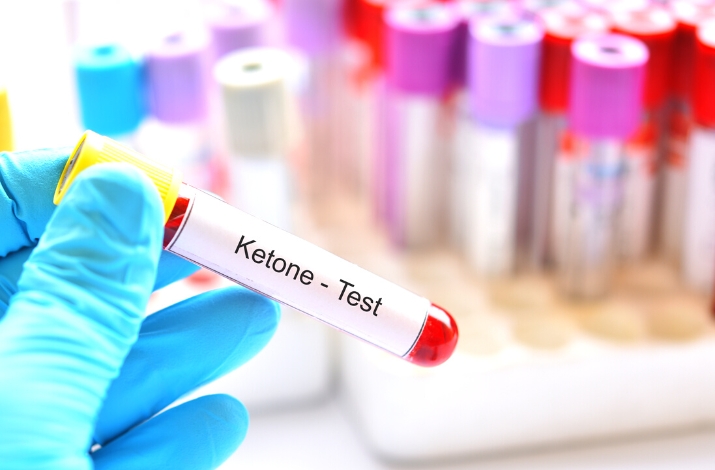How to tell if you’re in ketosis

The ketogenic diet is one of the most popular diets in the world for a reason. Keto diets put the body in a state of ketosis, which allows the body to use dietary fat and its own stored fat as fuel, rather than relying on glucose. An obvious benefit of such a diet is weight loss, but low carb practitioners enjoy myriad well-documented cardiometabolic and neurological benefits, as well [1,2,3].
When embarking on a ketogenic diet, perhaps the first question (after “what can I eat?”) is, “How do I know if I’m in Ketosis?”
There are a few ways to test for the presence of ketones in your body, but there are also some physiological signs that can give you a good idea of whether you’re in ketosis or not. Let’s review.
Testing
In order of most to least accurate are blood, breath, and urine tests that indicate the presence of ketones in the body. If you’re watching your macros and are certain you’re keeping carbs low and fat high, once you’re in ketosis, testing frequently is rarely necessary. Many people will test weekly rather than daily for this reason. However, if you’re just starting out or are resuming after cheating on your diet, testing can be beneficial.
Blood Test – A simple prick of the finger tests for the presence of ketones. The upside to blood testing is that it’s the most accurate way of telling if you’re in ketosis. The downsides include the expense and the hassle of pricking your finger. However, if you’re finding it difficult to tell if your efforts are paying off or if something is derailing you, a blood test is the surest way to know.
Breath Test – As the levels of ketones in your blood increase, the ketone acetone escapes through breathing. Breath meters can determine the amount of acetone being breathed out and, thereby, tell you if you’re in ketosis. Accuracy can be impacted by a number of factors, including activity levels and if you’ve had any of the following within roughly an hour: alcohol, breath mints, chewing gum, cough drops or lozenges, tobacco and e-cigarettes, lip balm, mint or green tea, mouthwash or toothpaste, non-nutritive sweeteners, and more. However, it’s the easiest way to test and can be fairly accurate.
Urine Test – The least accurate test for determining if you’re in ketosis is the urine test. While these are the cheapest option, because even hydration levels can affect the concentration of ketones, they are not particularly reliable. However, it can be handy to see if there are ketones in the urine, and if you’re struggling to get into ketosis and find the other options unappealing, they can be a helpful tool.
(To learn more about testing, read “How to Measure Metabolic Health”)
Physiological Signs
If you’ve gone full steam ahead with eating a ketogenic diet and are carefully monitoring your carbs to ensure 50g or below a day (and some people shoot for 20g or below), you may not find a ketone test to be necessary. If that’s the case, here are some physiological signs that can give you a strong indication of whether or not you’re in ketosis.
Keto Flu – anyone looking into the ketogenic diet will likely have heard of the dreaded “keto flu.” While the unpleasant effects of switching the body from being sugar burning to fat burning are real, they don’t compare to an actual flu. If you’re getting headaches or mild body aches, chances are, your body is making the switch. Rest assured that these mild aches are temporary. And fortunately, there are plenty of things you can do to avoid keto flu, including upping your hydration and salt intake.
Keto Breath – Because acetone escapes through breath, it makes sense that someone’s breath would change on a keto diet. Not everyone will experience this symptom, and not everyone will notice a distinct difference even if they do, but if you do find that your breath is less pleasant than before you started your diet, keep in mind that it will pass quickly as your body adjusts to your new way of eating. You can keep your breath fresh by brushing extra or popping in some sugar-free gum, mint leaves, or even whole cloves.
Changes in Bowel Habits – Digestive changes will come with most any change in way of eating, and the ketogenic diet is no different. Within the first few days, the bacteria in the gut begins to adapt to a new mix of macronutrients. Some people may get constipated while others may see looser stool. These adjustments are temporary, but in the long run, keto practitioners typically experience more stable, predictable, positive gut and bowel health. In fact, those with ongoing gastrointestinal issues often find that their symptoms are greatly improved overall on a ketogenic diet [4].
Decreased Performance – Learning to use a new fuel takes the body a bit of time to figure out. Your body will use up the glycogen in your liver and muscles–its short term energy stores—before it can make the switch to burning ketones. During this transition, if you exercise vigorously, you may initially find that your performance suffers. Like with the keto flu, electrolytes can help minimize this temporary fatigue.
Increased Urination – Another consequence of glycogen stores being depleted is an increase in urination. Glycogen retains water in your body, so as glycogen leaves, so does the excess water you’ve unknowingly retained.
Insomnia – Every body will adapt differently to the nutritional changes of a new diet, but short-term sleep problems may arise as your body derives its energy from a new source. Not everyone will experience sleep disruption, but if you do, you can expect it to last a few days. In some rare cases, it may last up to a few weeks.
These first signs of ketosis have been negative, even if temporary. Let’s now review the long term, beneficial signs that you’re in ketosis.
Decreased Appetite – Once you’re fat adapted, chances are you’ll find a noticeable decrease in appetite and cravings. The hunger hormone ghrelin is suppressed on a keto diet, meaning that hunger goes down and stays down on this high fat, low carb diet [5].
Improved Focus and Clarity – We may have to call on our high school days to understand this next benefit. Remember mitochondria, “The powerhouse of the cell?” Through a process called mitochondrial biogenesis, ketosis increases the number of mitochondria in the brain. This is a good thing, as mitochondria are essential to brain plasticity, among other key brain functions [6].
Increased Energy – If you’ve ever seen a toddler at a birthday party, you know something of the highs and lows that can follow carb loading. Ketosis, on the other hand, offers a steady supply of a powerful fuel that allows your body to maintain greater energy for longer.
Weight loss – Weight loss is perhaps the top reason people first look into a ketogenic diet (although hopefully the numerous health benefits are at least as convincing!). When the body stops using carbs for fuel, it starts to rely on its own fat stores, instead. Fat loss is the natural result of this process.
Some of these signs of ketosis may sound miserable, but they are fortunately short-lasting. Meanwhile, the positive signs are an indication of long-lasting benefits that come from living a ketogenic lifestyle. So if you’ve started cutting carbs and are wondering if you’ve arrived, take a test…or pay extra attention to how you feel.
References
- https://www.frontiersin.org/articles/10.3389/fendo.2021.753039/full
- Cunnane, S. C., Trushina, E., Morland, C., Prigione, A., Casadesus, G., Andrews, Z. B., Beal, M. F., Bergersen, L. H., Brinton, R. D. and de la Monte, S. (2020) Brain energy rescue: an emerging therapeutic concept for neurodegenerative disorders of ageing. Nature Reviews Drug Discovery, 1-25
- Chatterjee, P., Fernando, M., Fernando, B., Dias, C. B., Shah, T., Silva, R., Williams, S., Pedrini, S., Hillebrandt, H. and Goozee, K. (2020) Potential of coconut oil and medium chain triglycerides in the prevention and treatment of Alzheimer’s disease. Mechanisms of Ageing and Development. 186, 111209
- Austin GL, Dalton CB, Hu Y, Morris CB, Hankins J, Weinland SR, Westman EC, Yancy WS Jr, Drossman DA. A very low-carbohydrate diet improves symptoms and quality of life in diarrhea-predominant irritable bowel syndrome. Clin Gastroenterol Hepatol. 2009 Jun;7(6):706-708.e1. doi: 10.1016/j.cgh.2009.02.023. Epub 2009 Mar 10. PMID: 19281859; PMCID: PMC2693479.
- https://journals.lww.com/co-clinicalnutrition/Fulltext/2021/07000/Ketogenic_diets_and_appetite_regulation.14.aspx
- https://www.scientificamerican.com/article/could-mitochondria-be-the-key-to-a-healthy-brain/
This article is for informational and educational purposes only. It is not, nor is it intended to be substitute for professional medical advice, diagnosis, or treatment and should never be relied upon for specific medical advice.




















